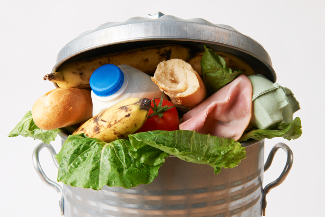Member State Page : Romania
Last updated on the 29/09/2023



Contact point
- Ministry of Agriculture and Rural Development: website, email
- Ministry of Environment, Water and Forests
Target
Romania is committed to meeting the Sustainable Development Goal Target 12.3 to halve per capita food waste at the retail and consumer level by 2030, and reduce food losses along the food production and supply chains.
Measure
Information not available
Act
The Romanian Law 217/2016 concerning the decrease of food waste (amended in 2018) includes several measures to reduce food waste across the food supply chain. Following its evaluation in 2019, the law was modified to facilitate the donation of surplus food, by simplifying the donation contracts and by clarifying the type of food business operators that can redistribute food. Donated foodstuffs are excluded from the application of VAT, if redistributed within 10 days before the expiration of their date of minimum durability.
The Ministry of Agriculture and Rural Development (MADR) is carrying out initiatives to educate consumers regarding food loss and waste such as awareness raising campaigns, school activities, seminars and trainings, events etc.
The MADR collaborates with the Ministry of Education for the implementation of an information campaign called ‘You can protect the planet as well! Together we start reducing food waste’, aimed at educating and informing school students about the economic, social and environmental impacts of food waste. Following an agreement with the Food and Agriculture Organisation of the United Nations, the ‘Do good: Save food! - Educating future generations for a zero food waste world’ educational materials will be translated into Romanian.
The MADR applies and monitors the legislation related to food waste. In the context of the sectorial plan 2019-2022, the ministry financed a project on methods for food waste reduction along the food chain, at national level, in order to prevent and reduce socio-economic impacts, until 2030 (ADER project 18.1.2). The project aims to:
- Conduct an impact assessment related to food waste at national level for the year 2020;
- Estimate the socio-economic costs of food waste along the entire food supply chain by 2030;
- Establish methods and economic models to prevent and diminish food waste along the whole food supply chain, in order to gather necessary data for the adoption of public policies;
- Conduct a study related to the new food donation methods and techniques, with the aim to reduce food waste, elaborate of manuals and guides of good practices.
The project will also analyse the evolution of food waste levels as a result of different models of public policies, as well as the costs associated with the implementation of these scenarios by 2030.
